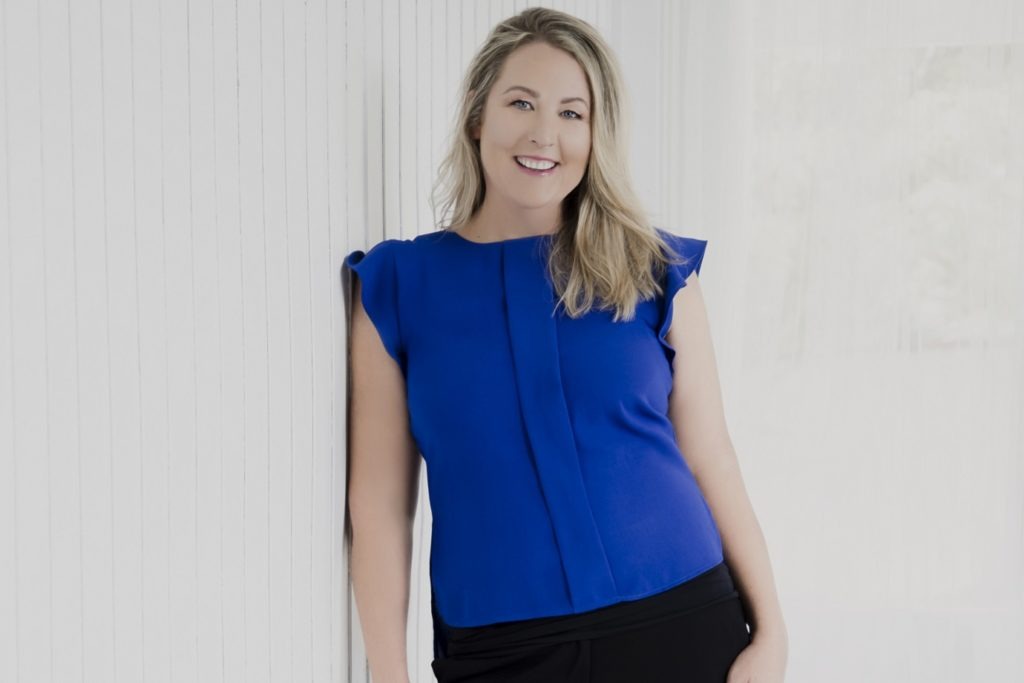It’s no secret that small businesses around Australia have been doing it tough this year, faced with the impacts of the pandemic, and for some in regional and rural areas, the devastating consequences of bushfires.
Finding ways to pivot and navigate through the unpredictable nature of 2020 and its economic fallout has been critical for many in small business. No one knows this more than Tara Jacobson, co-founder, and program director at groei, a business training program that focuses on supporting regional female-led businesses.
Tara says she’s witnessed in real time just how overwhelmed and exhausted many women in regional small businesses have been this year and has been working to provide a lifeline of support for those looking to find innovative ways to sustain their business.
In a recent survey of more than 700 women run by Women’s Agenda, a massive 48 per cent of respondents indicated they have been pursuing some form of upskilling during the pandemic. For some small businesses, learning to pivot and innovate could be critical their ability to survive.
Here, Jacobsen shares more on how she’s seen women in small business in regional areas adapt this year.
Could you share a little bit of background on groei – when and why did the business come about and what purpose does it serve?
groei was founded by me and my friend and business partner, Amanda Cole, in April of 2019. We started groei out of our frustration at the business education resources available in the market – there are plenty of business education and coaching solutions around, but businesses owners are still struggling to work out “how” to apply the sheer volume of upskilling resources available to their own business.
Our main purpose is to build sustainable businesses – businesses with longevity and strength – which will increase employment and economic sustainability in regional and urban communities across Australia and New Zealand.
We have a particular focus on regional female-led businesses – as women in business ourselves we know how difficult it can be and recognise the need to provide tailored support to female-led businesses.
The bushfires and the pandemic have dramatically impacted regional small businesses this year. What are some of the key challenges you’ve seen that female-led businesses have been faced with through this period?
Regional businesses have always faced the challenges of isolation and limited access to support, but the pandemic and recent natural disaster events have left regional communities and economies decimated.
Key concerns from female-led businesses during this period were how to juggle kids, family, business needs, staff, and their customers. Business owners do generally have to do these things – but never all at once and to such an intensity.
With each new wave of information and restrictions came unique challenges that affected more than just the business. This constantly changing landscape became the most significant obstacle, and most owners of female-led businesses felt overwhelmed and exhausted and really needed to connect to others that were going through the same thing.
Online access provided the much-needed opportunities to develop broader social capital – which was as much about learning together as connecting so people could be supported at all levels to build a better small business and survive during these times.
How can training programs and upskilling help regional business and regional women to create sustainable change and growth?
Flexibility is a primary reason for women deciding to start a business, yet a significant portion of women still define the difficulty of balancing work and family as a barrier to women starting or operating a business. When you add the dynamics of working remotely, the barriers for entry become more complex for women starting and growing businesses – particularly in regional towns.
Women learn differently to men. We learn better in groups, and we gain confidence when we see other women not only moving ahead, but also by supporting other women – the power of reciprocity.
If women can connect with other business owners through a skilling and learning process, they become exposed to new ways of thinking, become more mentally flexible, and can overcome the ‘imposter syndrome’ so many women experience in business – ultimately gaining the skills to create strong, sustainable businesses.
How does groei do things differently, compared to other small business training programs?
With COVID-19 came an overwhelming amount of access to educational content, and business owners jumped at the opportunity to learn how to help their business in this time. However, the challenge then became working out what specific help they needed, how to relate it to their specific circumstance, and how to implement to their business.
groei provides anyone who has a business idea, side hustle, solo, micro, or small business a learning environment that not only teaches the “what” but more importantly, the “how to”. We do individual coaching, small group coaching, cohort learning, access to industry advisors and specialists, and virtual self-paced micro lessons.
We know it’s hard for some women to make the time to work on their business so we have designed our programs to give our participants the structure and accountability to do the most important work a businessowner can do: strategy and planning. Essentially, we know better decisions means improved profitability with less stress and have designed groei to help small business owners get there.
Could you share an example of a female-led business that groei has supported recently?
One of our favourite success stories is Sam Devers, founder and owner of Small Biz HQ in Gladstone, Central Queensland. Her journey as a small business owner came from seeking a sustainable income for her family, and her business was born from trying to fit an income around having young children.
Sam had always done bookkeeping on and off, but the idea of actually owning and growing a small business only came about after seeing my involvement in the Women in Rural, Regional and Remote Enterprises (WiRE) program. Sam went through that program twice, and now has worked with groei on continuing to scale her small business and in turn, support other small businesses in her community.
Initially, Sam had difficulty with her business confidence – the ‘who am I to be starting a business?’ – but she credits the peer support and feedback, the community that groei offers, to overcoming that imposter syndrome feeling and learning how to run the business as a business and not just a job.
In Sam’s own words:
“I need to be more disciplined and keep learning business skills. Being part of the groei program supports me to keep my strategic plan front of mind as well as have the accountability to deliver it… I have never done strategy before. I have done the throw the spaghetti on the wall and see what sticks version. Through the program now I have a plan, and know the steps I need to take to get to my end goal… It’s helped me know who I need to be as a business owner to get there.”


